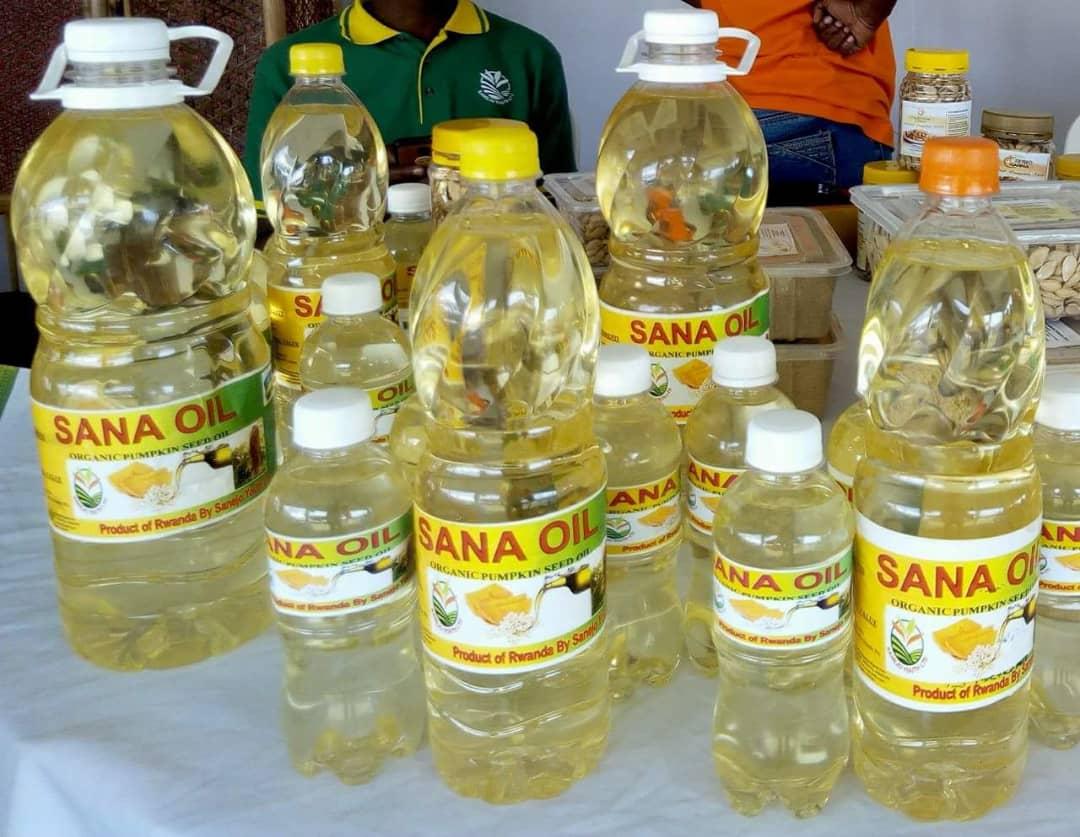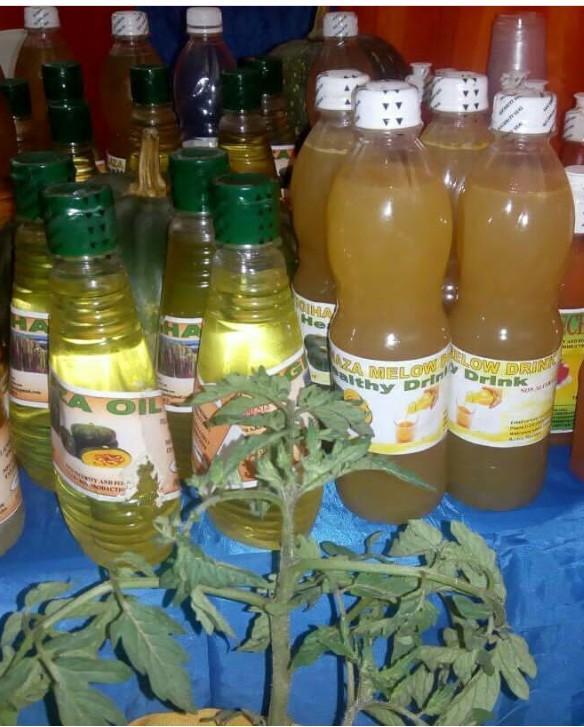
Cooking oil in different quantities. Joan Mbabazi

Juice and cooking oil made out of pumpkin and pumpkin seeds. Joan Mbabazi

Manishimwe posing with the pumpkin oil. Joan Mbabazi

